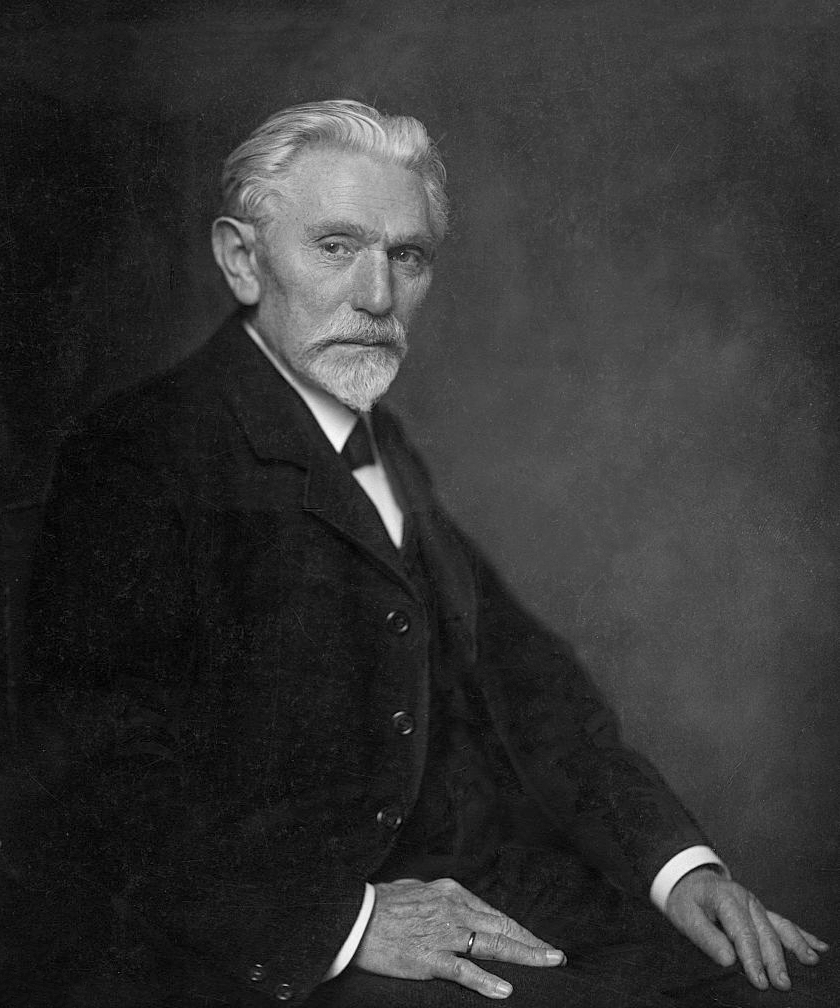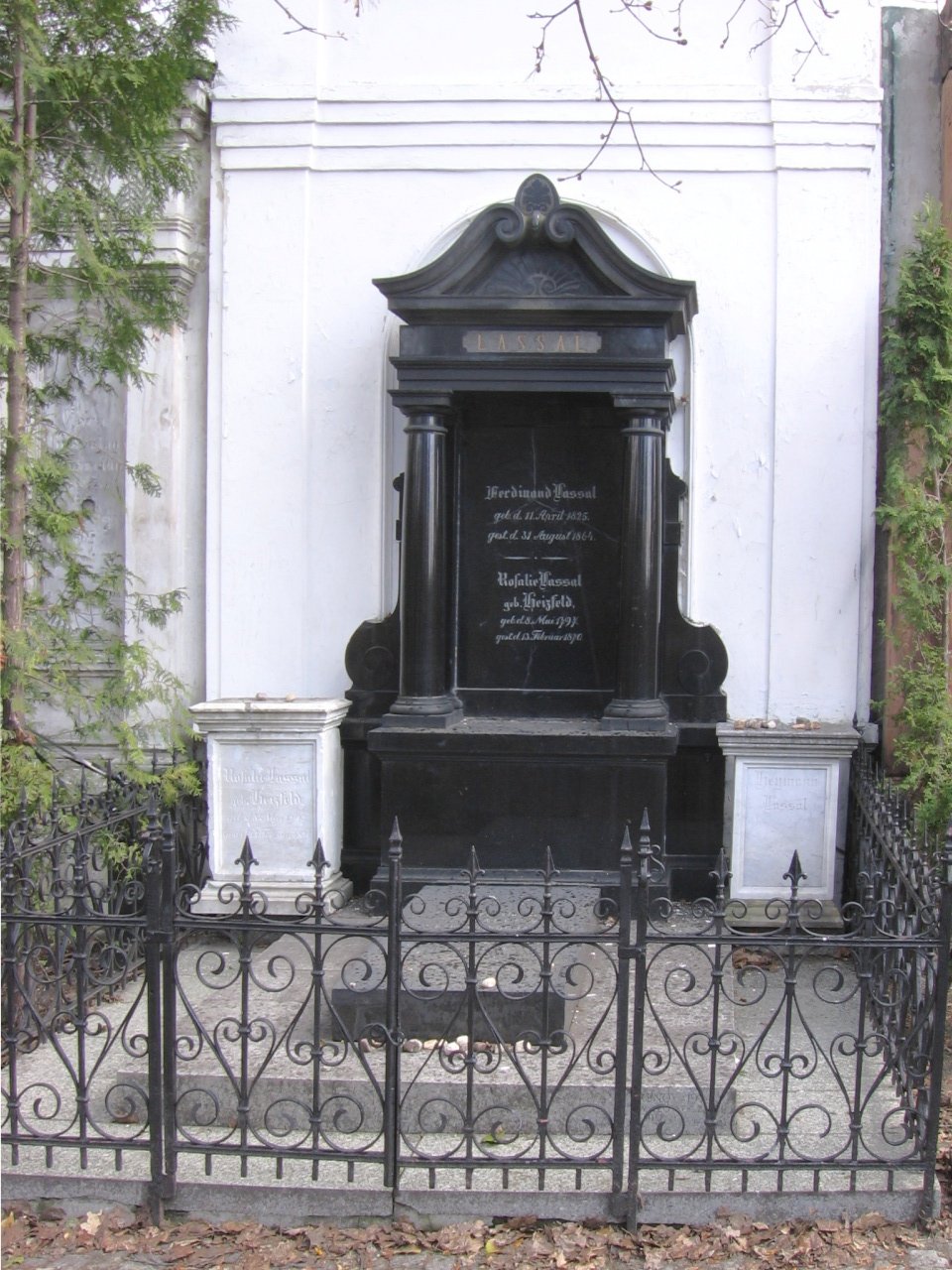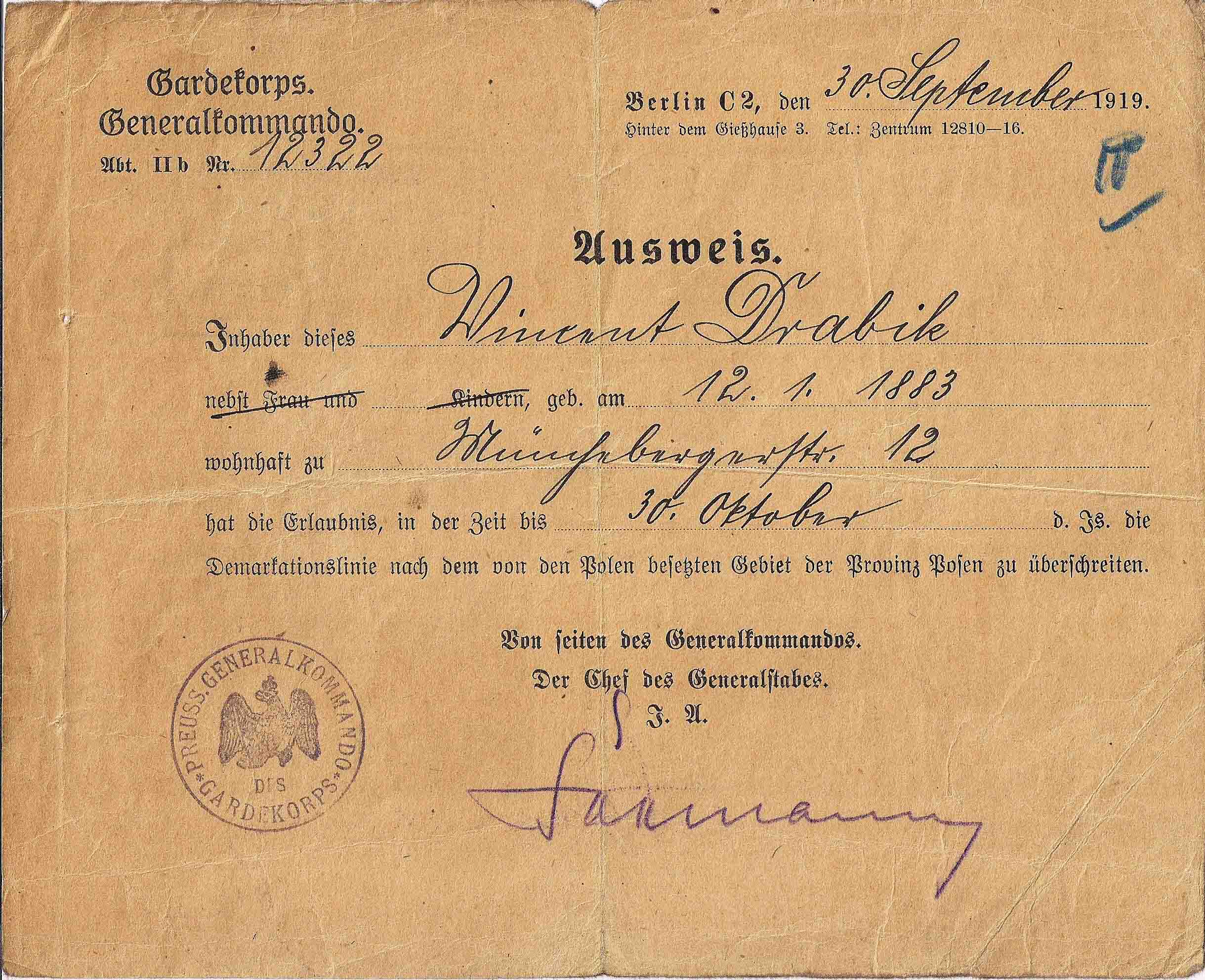|
August Bebel
Ferdinand August Bebel (22 February 1840 – 13 August 1913) was a German socialist politician, writer, and orator. He is best remembered as one of the founders of the Social Democratic Workers' Party of Germany (SDAP) in 1869, which in 1875 merged with the General German Workers' Association into the Socialist Workers' Party of Germany (SAPD). During the repression under the terms of the Anti-Socialist Laws, Bebel became the leading figure of the social democratic movement in Germany and from 1892 until his death served as chairman of the Social Democratic Party of Germany. Biography Early years Ferdinand August Bebel, known as August, was born on 22 February 1840, in Deutz, Germany, now a part of Cologne. He was the son of a Prussian noncommissioned officer in the Prussian infantry, initially from Ostrowo in the Province of Posen, and was born in military barracks. The father died in 1844. As a young man, Bebel apprenticed as a carpenter and joiner in Leipzig."August Bebel ... [...More Info...] [...Related Items...] OR: [Wikipedia] [Google] [Baidu] |
Social Democratic Party Of Germany
The Social Democratic Party of Germany (german: Sozialdemokratische Partei Deutschlands, ; SPD, ) is a centre-left social democratic political party in Germany. It is one of the major parties of contemporary Germany. Saskia Esken has been the party's leader since the 2019 leadership election together with Lars Klingbeil, who joined her in December 2021. After Olaf Scholz was elected chancellor in 2021 the SPD became the leading party of the federal government, which the SPD formed with the Greens and the Free Democratic Party, after the 2021 federal election. The SPD is a member of 11 of the 16 German state governments and is a leading partner in seven of them. The SPD was established in 1863. It was one of the earliest Marxist-influenced parties in the world. From the 1890s through the early 20th century, the SPD was Europe's largest Marxist party, and the most popular political party in Germany. During the First World War, the party split between a pro-war main ... [...More Info...] [...Related Items...] OR: [Wikipedia] [Google] [Baidu] |
General German Workers' Association
The General German Workers' Association (german: Allgemeiner Deutscher Arbeiter-Verein, ADAV) was a German political party founded on 23 May 1863 in Leipzig, Kingdom of Saxony by Ferdinand Lassalle. It was the first organized mass working-class party in European history. The organization existed by this name until 1875, when it combined with the Social Democratic Workers' Party of Germany (SDAP) to form the Socialist Workers' Party of Germany. This unified organization was renamed soon thereafter the Social Democratic Party of Germany (SPD), which presently remains in existence and dates its origins to the founding of the ADAV. Its Austrian part would become the SPÖ. The ADAV was the first German Labour Party, formed in Prussia prior to the establishment of the German Empire. It was active in the German Confederation, which included the Austrian Empire. Organizational history Establishment The ADAV was founded in Leipzig by Ferdinand Lassalle and twelve delegates f ... [...More Info...] [...Related Items...] OR: [Wikipedia] [Google] [Baidu] |
Karl Marx
Karl Heinrich Marx (; 5 May 1818 – 14 March 1883) was a German philosopher, economist, historian, sociologist, political theorist, journalist, critic of political economy, and socialist revolutionary. His best-known titles are the 1848 pamphlet '' The Communist Manifesto'' and the four-volume (1867–1883). Marx's political and philosophical thought had enormous influence on subsequent intellectual, economic, and political history. His name has been used as an adjective, a noun, and a school of social theory. Born in Trier, Germany, Marx studied law and philosophy at the universities of Bonn and Berlin. He married German theatre critic and political activist Jenny von Westphalen in 1843. Due to his political publications, Marx became stateless and lived in exile with his wife and children in London for decades, where he continued to develop his thought in collaboration with German philosopher Friedrich Engels and publish his writings, researching in the British Mu ... [...More Info...] [...Related Items...] OR: [Wikipedia] [Google] [Baidu] |
Ferdinand Lassalle
Ferdinand Lassalle (; 11 April 1825 – 31 August 1864) was a Prussian-German jurist, philosopher, socialist and political activist best remembered as the initiator of the social democratic movement in Germany. "Lassalle was the first man in Germany, the first in Europe, who succeeded in organising a party of socialist action", or, as Rosa Luxemburg put it: "Lassalle managed to wrestle from history in two years of flaming agitation what needed many decades to come about." As agitator he coined the terms night-watchman state and iron law of wages. Biography Early life Lassalle was born Ferdinand Johann Gottlieb Lassal on 11 April 1825 in Breslau, Silesia (now Wrocław, Poland). His father Heyman Lassal was a Jewish silk merchant and intended his son for a business career, sending him to the commercial school at Leipzig. However, Lassalle soon transferred to university, studying first in the University of Breslau and later at the University of Berlin. There, Lassalle stud ... [...More Info...] [...Related Items...] OR: [Wikipedia] [Google] [Baidu] |
County Of Tyrol
The (Princely) County of Tyrol was an estate of the Holy Roman Empire established about 1140. After 1253, it was ruled by the House of Gorizia and from 1363 by the House of Habsburg. In 1804, the County of Tyrol, unified with the secularised prince-bishoprics of Trent and Brixen, became a crown land of the Austrian Empire. From 1867, it was a Cisleithanian crown land of Austria-Hungary. Today the territory of the historic crown land is divided between the Italian autonomous region of Trentino-Alto Adige/Südtirol and the Austrian state of Tyrol. The two parts are today associated again in the Tyrol–South Tyrol–Trentino Euroregion. History Establishment At least since German king Otto I had conquered the former Lombard kingdom of Italy in 961 and had himself crowned Holy Roman Emperor in Rome, the principal passes of the Eastern Alps had become an important transit area. The German monarchs regularly travelled across Brenner or Reschen Pass on their Ital ... [...More Info...] [...Related Items...] OR: [Wikipedia] [Google] [Baidu] |
Roman Catholic
Roman or Romans most often refers to: * Rome, the capital city of Italy *Ancient Rome, Roman civilization from 8th century BC to 5th century AD * Roman people, the people of ancient Rome *'' Epistle to the Romans'', shortened to ''Romans'', a letter in the New Testament of the Christian Bible Roman or Romans may also refer to: Arts and entertainment Music * Romans (band), a Japanese pop group * ''Roman'' (album), by Sound Horizon, 2006 * ''Roman'' (EP), by Teen Top, 2011 *" Roman (My Dear Boy)", a 2004 single by Morning Musume Film and television * Film Roman, an American animation studio * ''Roman'' (film), a 2006 American suspense-horror film * ''Romans'' (2013 film), an Indian Malayalam comedy film * ''Romans'' (2017 film), a British drama film * ''The Romans'' (''Doctor Who''), a serial in British TV series People *Roman (given name), a given name, including a list of people and fictional characters *Roman (surname), including a list of people named Roman or Romans *Ῥω� ... [...More Info...] [...Related Items...] OR: [Wikipedia] [Google] [Baidu] |
Salzburg
Salzburg (, ; literally "Salt-Castle"; bar, Soizbuag, label=Austro-Bavarian) is the fourth-largest city in Austria. In 2020, it had a population of 156,872. The town is on the site of the Roman settlement of ''Iuvavum''. Salzburg was founded as an episcopal see in 696 and became a seat of the archbishop in 798. Its main sources of income were salt extraction, trade, and gold mining. The fortress of Hohensalzburg, one of the largest medieval fortresses in Europe, dates from the 11th century. In the 17th century, Salzburg became a center of the Counter-Reformation, with monasteries and numerous Baroque churches built. Salzburg's historic center (German: ''Altstadt'') is renowned for its Baroque architecture and is one of the best-preserved city centers north of the Alps. The historic center was enlisted as a UNESCO World Heritage Site in 1996. The city has three universities and a large population of students. Tourists also visit Salzburg to tour the historic center and the ... [...More Info...] [...Related Items...] OR: [Wikipedia] [Google] [Baidu] |
Leipzig
Leipzig ( , ; Upper Saxon: ) is the most populous city in the German state of Saxony. Leipzig's population of 605,407 inhabitants (1.1 million in the larger urban zone) as of 2021 places the city as Germany's eighth most populous, as well as the second most populous city in the area of the former East Germany after ( East) Berlin. Together with Halle (Saale), the city forms the polycentric Leipzig-Halle Conurbation. Between the two cities (in Schkeuditz) lies Leipzig/Halle Airport. Leipzig is located about southwest of Berlin, in the southernmost part of the North German Plain (known as Leipzig Bay), at the confluence of the White Elster River (progression: ) and two of its tributaries: the Pleiße and the Parthe. The name of the city and those of many of its boroughs are of Slavic origin. Leipzig has been a trade city since at least the time of the Holy Roman Empire. The city sits at the intersection of the Via Regia and the Via Imperii, two important m ... [...More Info...] [...Related Items...] OR: [Wikipedia] [Google] [Baidu] |
Province Of Posen
The Province of Posen (german: Provinz Posen, pl, Prowincja Poznańska) was a province of the Kingdom of Prussia from 1848 to 1920. Posen was established in 1848 following the Greater Poland Uprising as a successor to the Grand Duchy of Posen, which in turn was annexed by Prussia in 1815 from Napoleon's Duchy of Warsaw. It became part of the German Empire in 1871. After World War I, Posen was briefly part of the Free State of Prussia within Weimar Germany, but was dissolved in 1920 when most of its territory was ceded to the Second Polish Republic by the Treaty of Versailles, and the remaining German territory was later re-organized into Posen-West Prussia in 1922. Posen (present-day Poznań, Poland) was the provincial capital. Geography The land is mostly flat, drained by two major watershed systems; the Noteć (German: ''Netze'') in the north and the Warta (''Warthe'') in the center. Ice Age glaciers left moraine deposits and the land is speckled with hundreds of "fi ... [...More Info...] [...Related Items...] OR: [Wikipedia] [Google] [Baidu] |
Ostrów Wielkopolski
Ostrów Wielkopolski () (often abbreviated ''Ostrów Wlkp.'', formerly called simply ''Ostrów'', german: Ostrowo, Latin: ''Ostrovia'') is a city in west-central Poland with 70,982 inhabitants (2021), situated in the Greater Poland Voivodeship; the seat of Ostrów Wielkopolski County. It is the fifth-largest city in the voivodeship after Poznań, Kalisz, Piła and Konin. History Recently, a small fortified dwelling dating from the 10th century was discovered on the north-east side of the town's limits. An archeological excavation is now in progress. It was part of Poland since the establishment of the state in the 10th century. The oldest known mention of Ostrów comes from a document from 1293. Ostrów received town rights in 1404 but the economic stagnation caused by fires, wars, and a weak 16th-century nobility, led to the town's officials dropping its town status in 1711. Administratively it was located in the Kalisz Voivodeship in the Greater Poland Province of the P ... [...More Info...] [...Related Items...] OR: [Wikipedia] [Google] [Baidu] |
Noncommissioned Officer
A non-commissioned officer (NCO) is a military officer who has not pursued a commission. Non-commissioned officers usually earn their position of authority by promotion through the enlisted ranks. (Non-officers, which includes most or all enlisted personnel, are of lower rank than any officer.) In contrast, commissioned officers usually enter directly from a military academy, officer candidate school (OCS), or officer training school (OTS) after receiving a post-secondary degree. The NCO corps usually includes many grades of enlisted, corporal and sergeant; in some countries, warrant officers also carry out the duties of NCOs. The naval equivalent includes some or all grades of petty officer. There are different classes of non-commissioned officers, including junior (lower ranked) non-commissioned officers (JNCO) and senior/staff (higher ranked) non-commissioned officers (SNCO). Function The non-commissioned officer corps has been referred to as "the backbone" of the arme ... [...More Info...] [...Related Items...] OR: [Wikipedia] [Google] [Baidu] |
Prussia
Prussia, , Old Prussian: ''Prūsa'' or ''Prūsija'' was a German state on the southeast coast of the Baltic Sea. It formed the German Empire under Prussian rule when it united the German states in 1871. It was ''de facto'' dissolved by an emergency decree transferring powers of the Prussian government to German Chancellor Franz von Papen in 1932 and ''de jure'' by an Allied decree in 1947. For centuries, the House of Hohenzollern ruled Prussia, expanding its size with the Prussian Army. Prussia, with its capital at Königsberg and then, when it became the Kingdom of Prussia in 1701, Berlin, decisively shaped the history of Germany. In 1871, Prussian Minister-President Otto von Bismarck united most German principalities into the German Empire under his leadership, although this was considered to be a "Lesser Germany" because Austria and Switzerland were not included. In November 1918, the monarchies were abolished and the nobility lost its political power during the ... [...More Info...] [...Related Items...] OR: [Wikipedia] [Google] [Baidu] |






